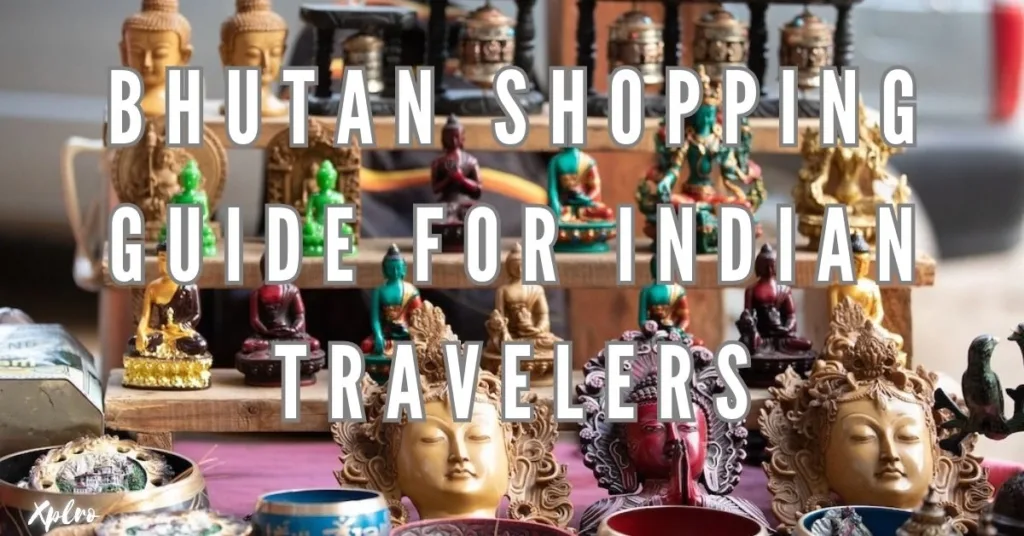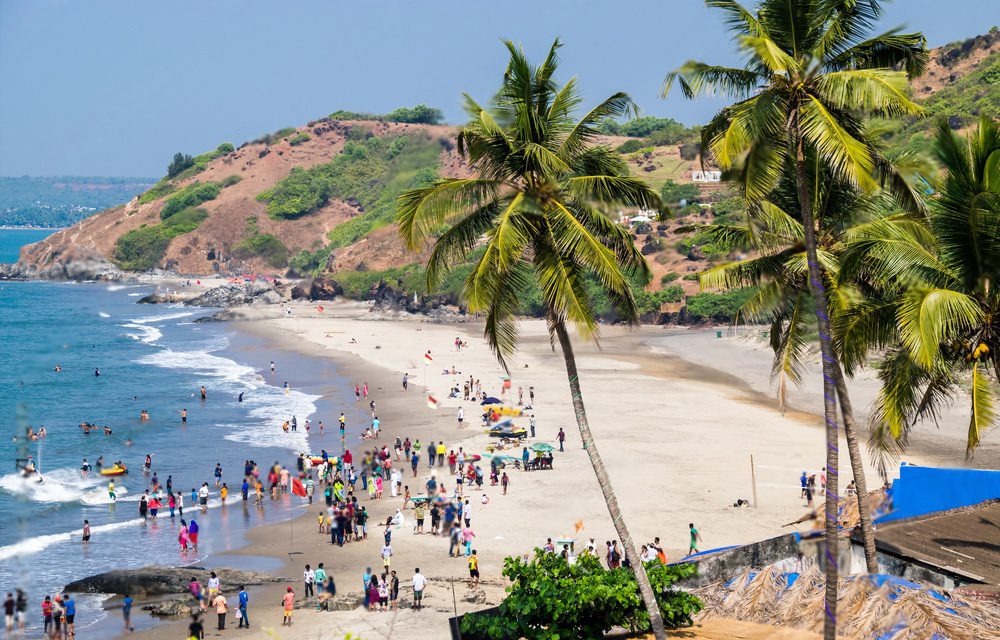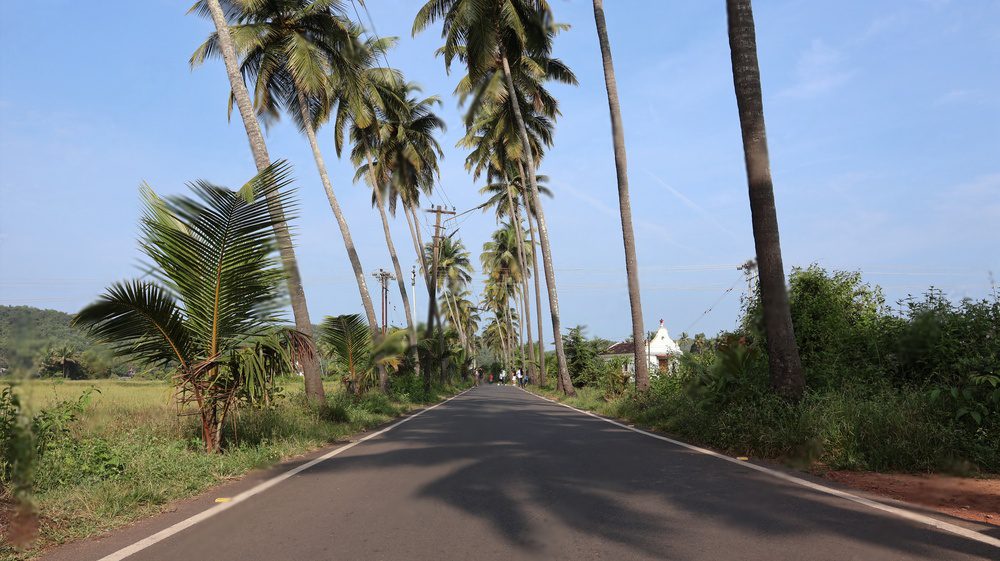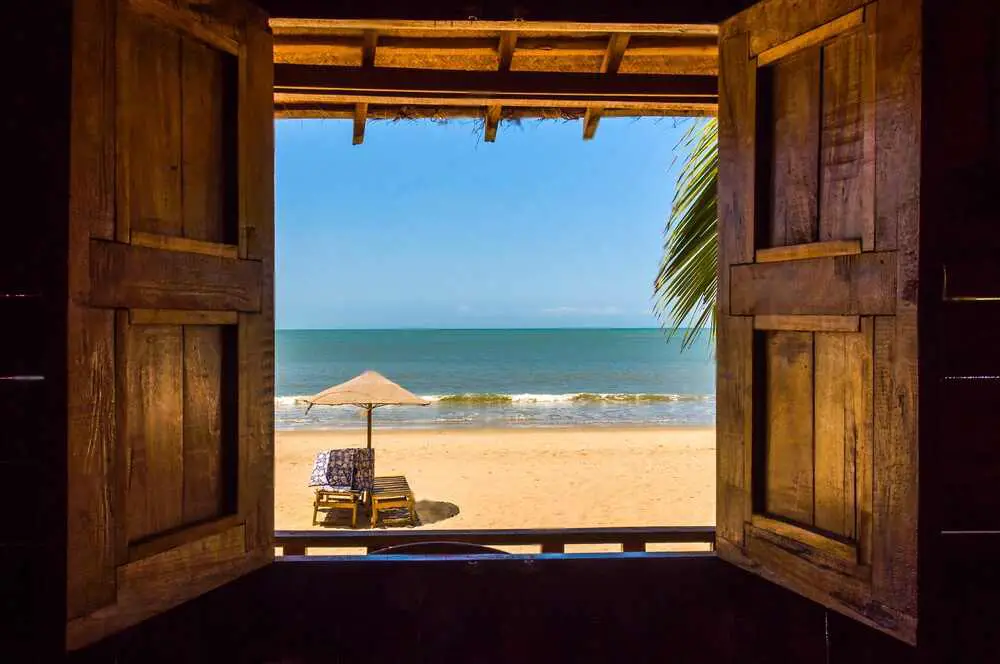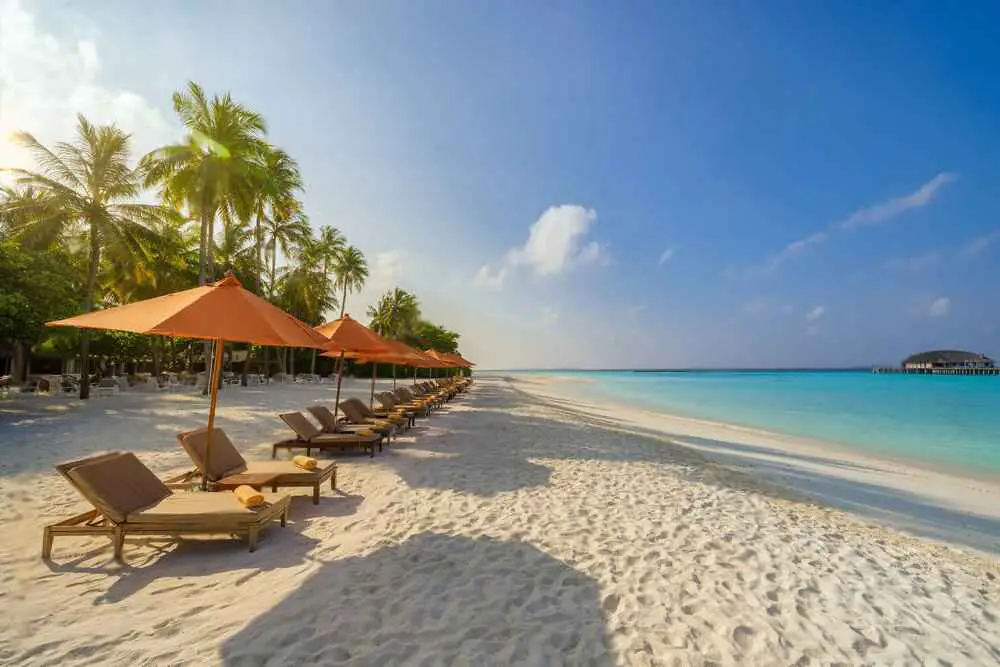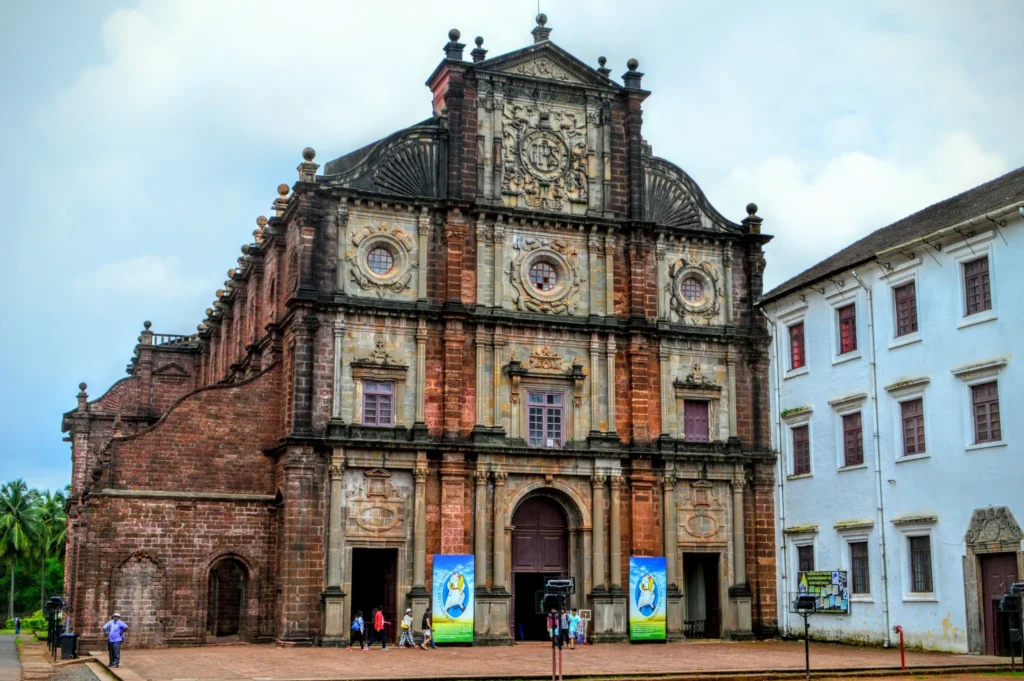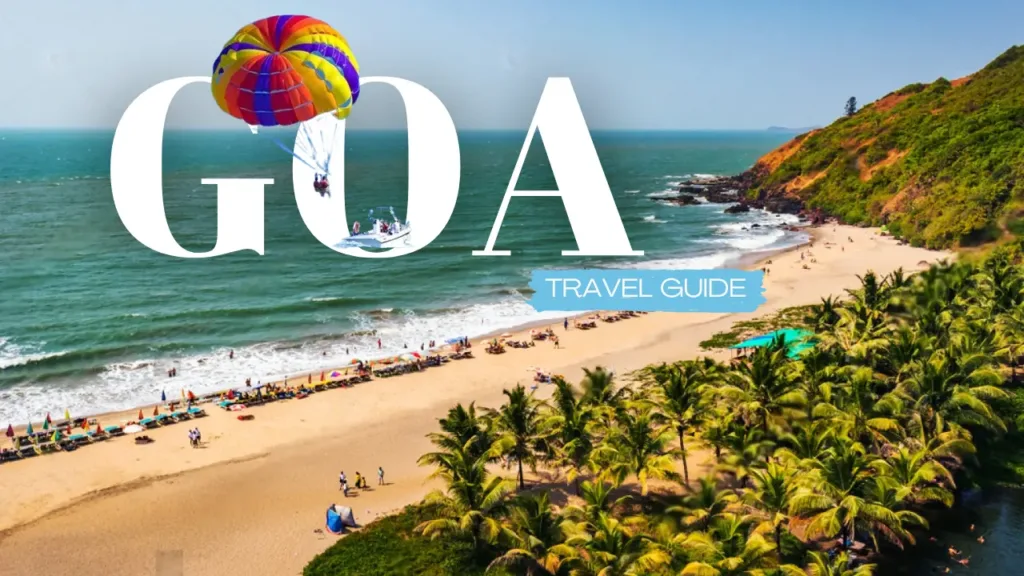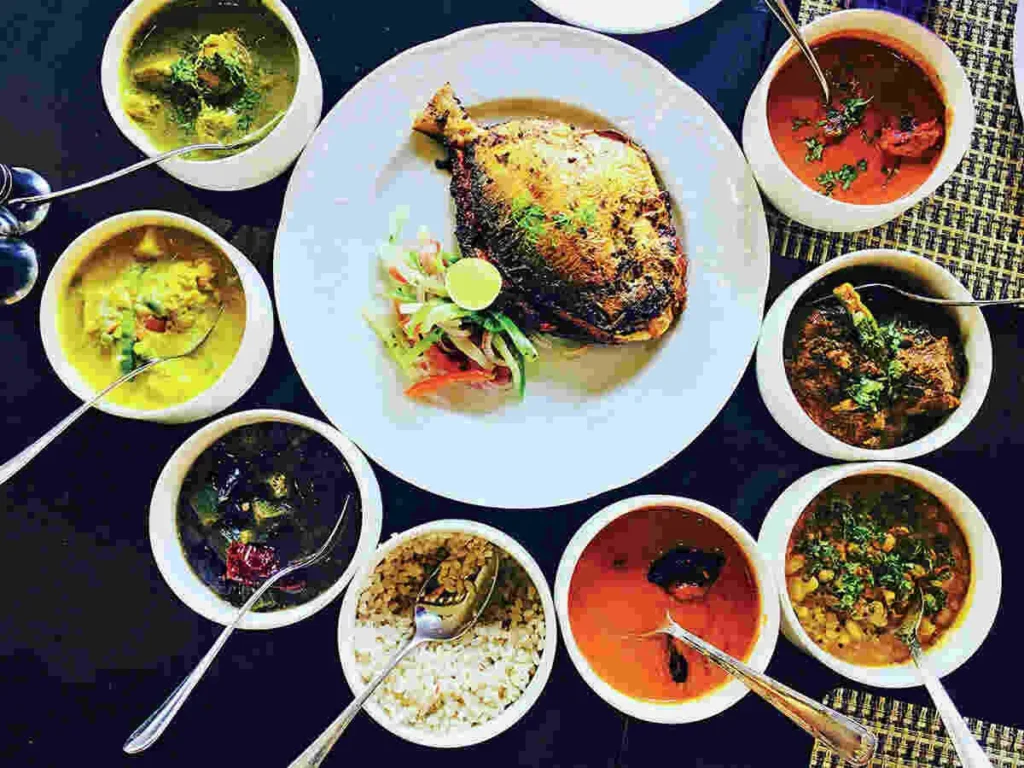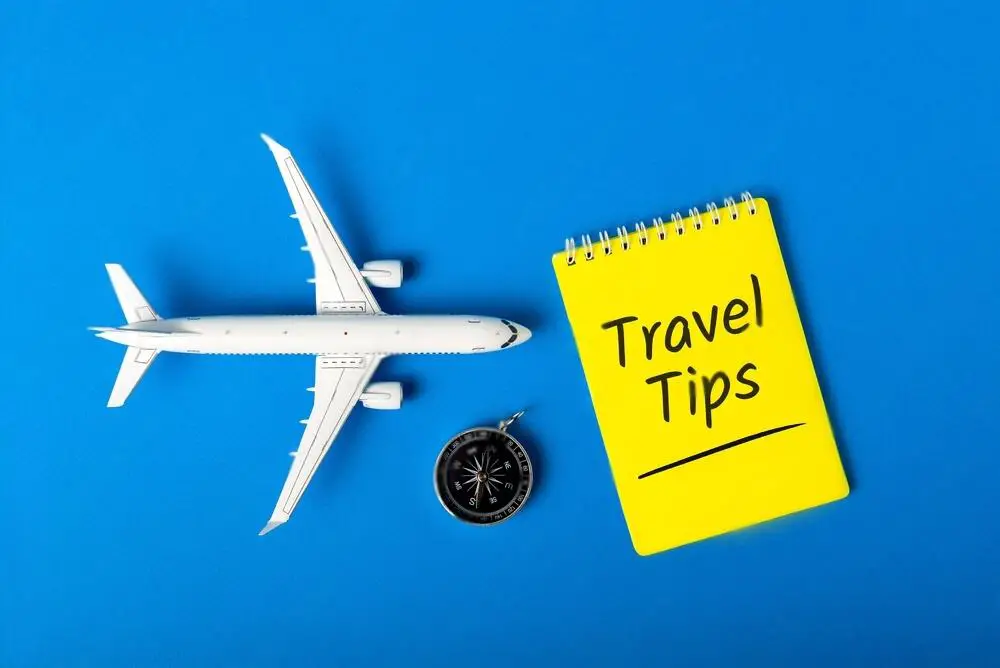Bhutan Shopping Guide for Indian Travelers; Bhutan, often called the ‘Land of the Thunder Dragon,’ is a dream come true for travelers who crave tranquility, cultural immersion, and truly unique shopping adventures. If you’re an Indian traveler, Bhutan offers a captivating mix of traditional crafts, vibrant textiles, and locally made souvenirs. This guide will help you discover Bhutan’s hidden gems and ensure your shopping trip is unforgettable.
1. Understanding Bhutan’s Shopping Scene
Before you start shopping, it’s helpful to understand how things work in Bhutan:
- Market Life: Most of the shopping happens in local markets and charming boutiques.
- Handmade Treasures: Bhutan is famous for its handcrafted goods, each piece telling a story of its rich culture.
- Easy Payments: You’ll be happy to know that Indian Rupees are widely accepted in Bhutan, making it easy to shop.
2. Best Places to Shop in Bhutan
Thimphu
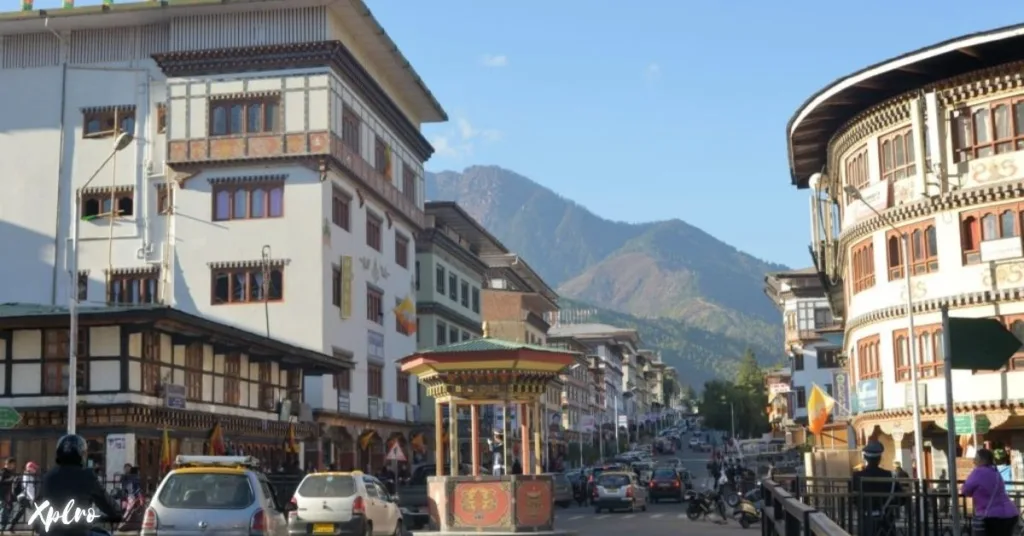

- Norzin Lam Street: This lively street is a shopper’s paradise, filled with shops offering beautiful handicrafts, unique souvenirs, and stunning Bhutanese clothing.
- Weekend Market: Experience the local vibe at this bustling market, where you can find fresh organic produce, aromatic spices, and incredible handmade crafts.
Paro
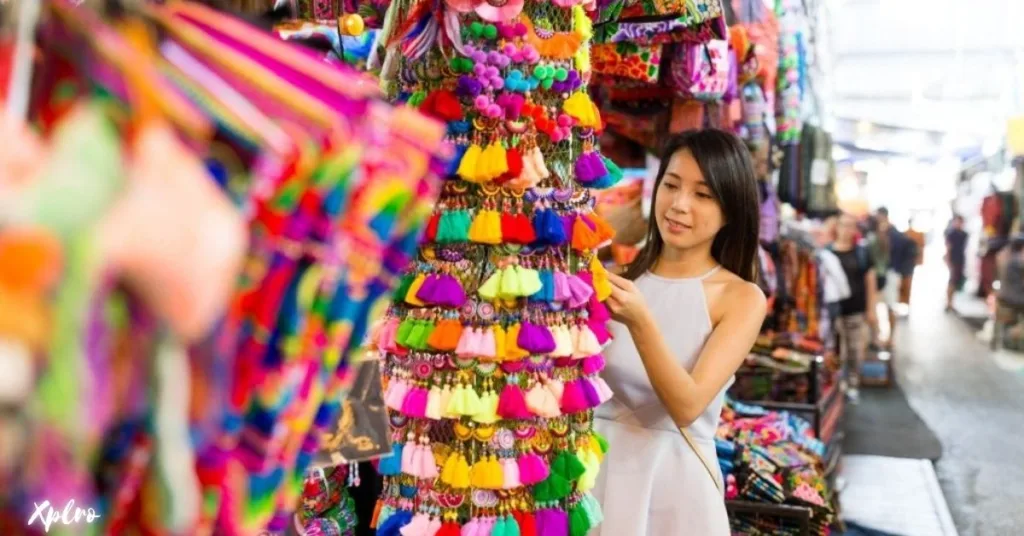

- Paro Town Market: This charming market is a must-visit for any shopper. Discover exquisite traditional thangka paintings, intricate jewelry, and vibrant textiles.
- Chencho Handicrafts: This renowned shop is a treasure trove of authentic Bhutanese crafts, perfect for unique souvenirs.
Punakha
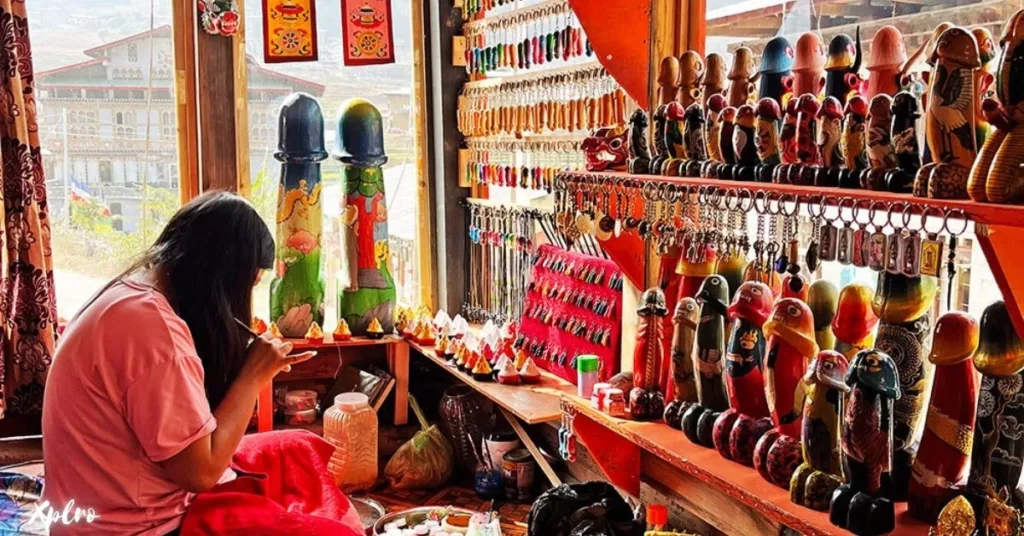

- Punakha Handicrafts Emporium: This emporium is overflowing with handmade treasures, from intricately woven baskets to beautifully crafted pottery.
Phuentsholing – Bhutan Shopping Guide for Indian Travelers
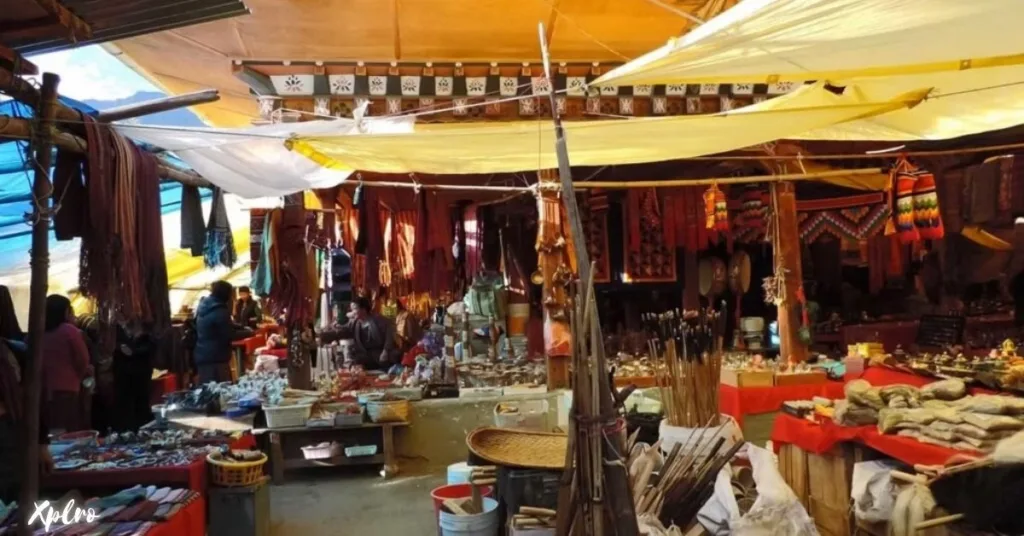

- Border Markets: These markets are a great place to find affordable souvenirs and delicious snacks to enjoy on your trip back to India.
3. Unique Bhutanese Items to Buy
Textiles & Clothing
- Kira & Gho: Don’t miss the chance to admire (or even purchase!) the Kira (for women) and Gho (for men), the stunning traditional Bhutanese attire made from beautifully handwoven textiles.
- Warm & Stylish: Cozy scarves and elegant stoles, crafted from luxurious yak wool and shimmering silk, make wonderful gifts for yourself or loved ones.
Handicrafts
- Thangka Treasures: Discover the intricate beauty of Thangka paintings, captivating Buddhist art delicately painted on cotton or silk.
- Mystical Masks: Bring home a piece of Bhutanese folklore with decorative wooden masks, each one a unique and intriguing work of art.
- Blessings & Prayers: Find meaningful souvenirs in the form of prayer wheels and colorful prayer flags, imbued with deep cultural and religious significance.
Jewelry & Accessories
- Sparkling Treasures: Adorn yourself with unique silver and gold jewelry, often featuring captivating traditional motifs.
- Vibrant Necklaces: Discover stunning beaded necklaces crafted with colorful stones and vibrant coral, adding a touch of Bhutanese style to any outfit.
Food & Beverages
- Honey Delights: Indulge in the rich flavor and purity of Bhutanese honey, a true taste of the Himalayas.
- Healthy & Delicious: Bring home a bag of organic red rice, a staple in Bhutanese cuisine and a healthy addition to your meals.
- Warm & Refreshing: Experience the local flavors with a cup of suja (butter tea) leaves or explore the diverse selection of aromatic herbal teas.
- A Taste of Tradition: If you’re feeling adventurous, try Ara, a traditional Bhutanese alcoholic beverage made from rice or wheat.
Other Souvenirs
- Functional & Beautiful: Find charming handmade wooden or bamboo bowls, perfect for enjoying meals or adding a touch of rustic elegance to your home.
- Aromatic Delights: Bring home the calming scent of Bhutanese incense, ideal for meditation, relaxation, or creating a peaceful ambiance.
- Eco-Friendly & Unique: Discover eco-friendly and stylish journals and cards made from the Daphne plant, a truly unique and sustainable souvenir.
4. Tips for Shopping in Bhutan
- Fair Play: Bargaining isn’t common in Bhutan, especially when it comes to handcrafted items. Remember to value the hard work of the artisans and pay a fair price for their creations.
- Spot the Real Deal: Look for the “Authentic Bhutanese Craft” label to ensure you’re buying genuine and high-quality handicrafts.
- Cash is King: While larger shops might accept cards, most markets prefer cash. It’s always a good idea to carry enough cash for your shopping adventures.
- Support Local Artisans: By shopping at small businesses and supporting local artisans, you contribute to the vibrant Bhutanese economy and have a more authentic shopping experience.
5. Shopping Etiquette in Bhutan
- Be Courteous & Respectful: Remember to be polite and respectful to the shopkeepers you encounter.
- Take Your Time: Enjoy the shopping experience and avoid rushing or haggling aggressively.
- Treat Sacred Items with Respect: When browsing religious items like prayer wheels or thangkas, please handle them with care and reverence.
6. What Not to Buy
- Respect Wildlife: To protect Bhutan’s incredible biodiversity, please avoid purchasing any items made from endangered wildlife.
- Respect Cultural Heritage: It’s important to remember that exporting antique artifacts without proper permits is illegal.
7. Packing Your Purchases
- Pack with Care: To ensure your treasures arrive home safely, pack fragile items like thangkas, masks, and pottery securely. Check Customs Rules: Before you pack your bags, familiarize yourself with Bhutan’s export policies, especially regarding cultural artifacts.
8. Best Time to Shop in Bhutan
Festival Fun: Time your trip to coincide with a local festival (Tsechu) for a truly unique experience. You’ll encounter vibrant handicrafts and immerse yourself in captivating cultural displays.
Winter Warmth: If you’re visiting during the winter months, be sure to explore the selection of warm textiles and cozy yak wool products.
9. Shopping Beyond Souvenirs
Beyond Souvenirs: While souvenirs are wonderful, the true treasure of Bhutanese shopping lies in the experience itself:
- Cultural Connections: Engage with the talented artisans and learn about the rich history and traditions woven into each creation.
- Hands-on Memories: Consider taking a weaving or thangka painting workshop. This way, you’ll bring home not just a souvenir, but a unique and unforgettable experience.
Conclusion
Shopping in Bhutan transcends retail therapy; it’s a captivating journey into the heart of the country’s soul. From the intricate beauty of handwoven textiles to the soul-warming aroma of local teas, every item you encounter whispers a tale of Bhutan’s rich culture and heritage. Indian travelers are especially in for a treat, as Bhutan’s unique offerings and the legendary Bhutanese hospitality guarantee an unforgettable shopping experience. So, pack your bags, maybe even an extra one for the treasures you’ll discover, and get ready to be captivated by Bhutan’s magic. Happy shopping! Explore more travel tips and hidden gems on Xplro.com, your one-stop shop for crafting the perfect Bhutan adventure.
FAQs
1. What currency can Indian travelers use in Bhutan?
- Indian Rupees (INR) are widely accepted in Bhutan, especially ₹100 notes and lower denominations. Higher denominations like ₹500 and ₹2000 are also accepted in most towns. Bhutanese Ngultrum (BTN), the local currency, is pegged to the Indian Rupee at the same value.
2. What are the best things to buy in Bhutan?
- Some of the must-buy items in Bhutan include traditional Bhutanese textiles (such as gho and kira), thangka paintings, wooden masks, organic red rice, handcrafted jewelry, and local honey.
3. Are items in Bhutan expensive for Indian tourists?
- While handmade crafts and traditional goods may seem pricey, they reflect the high-quality workmanship involved. Everyday souvenirs and local products are reasonably priced and affordable for Indian travelers.
4. Where can I find authentic Bhutanese crafts?
- You can find genuine Bhutanese crafts at Norzin Lam Street in Thimphu, Paro Town Market, Punakha Handicrafts Emporium, and certified government stores marked with the “Authentic Bhutanese Craft” label.
5. Is bargaining acceptable in Bhutanese markets?
- Bargaining is not a common practice in Bhutan, especially for handmade items. Prices are usually fair, reflecting the time and effort put into creating the products.
6. Can I buy antiques or religious items in Bhutan?
- While antiques and religious artifacts are available, exporting them requires special permission. Ensure you purchase such items from reputable sellers and follow Bhutan’s strict regulations.
7. Are Indian tourists allowed to take local alcohol from Bhutan?
- Yes, Indian travelers can bring back local beverages like Ara (a traditional Bhutanese alcohol). However, customs regulations apply, and you should check the current rules on the allowable quantity before traveling.
8. Are Bhutan’s markets open throughout the week?
- Most markets operate daily, but weekend markets, like the one in Thimphu, are particularly lively. These markets offer a wide range of fresh produce, handmade goods, and local crafts.
9. What eco-friendly products can I buy in Bhutan?
- Bhutan is a haven for eco-friendly shopping. Look for handmade paper products, bamboo items, wooden bowls, and natural incense sticks made with organic materials.
10. Are credit cards widely accepted in Bhutan?
- Credit cards are accepted in high-end shops, hotels, and a few urban stores. However, many markets and smaller shops prefer cash transactions, so it’s wise to carry enough cash.
11. Can I find vegetarian or vegan products in Bhutan?
- Absolutely! Bhutan offers a range of vegetarian and vegan-friendly items such as organic red rice, herbal teas, and vegetarian snacks that you can easily find in markets.
12. Are there any items I should avoid buying in Bhutan?
- Avoid buying products made from endangered animals, counterfeit antiques, or artifacts without proper export permits. These items are illegal to export and may result in fines or confiscation.
